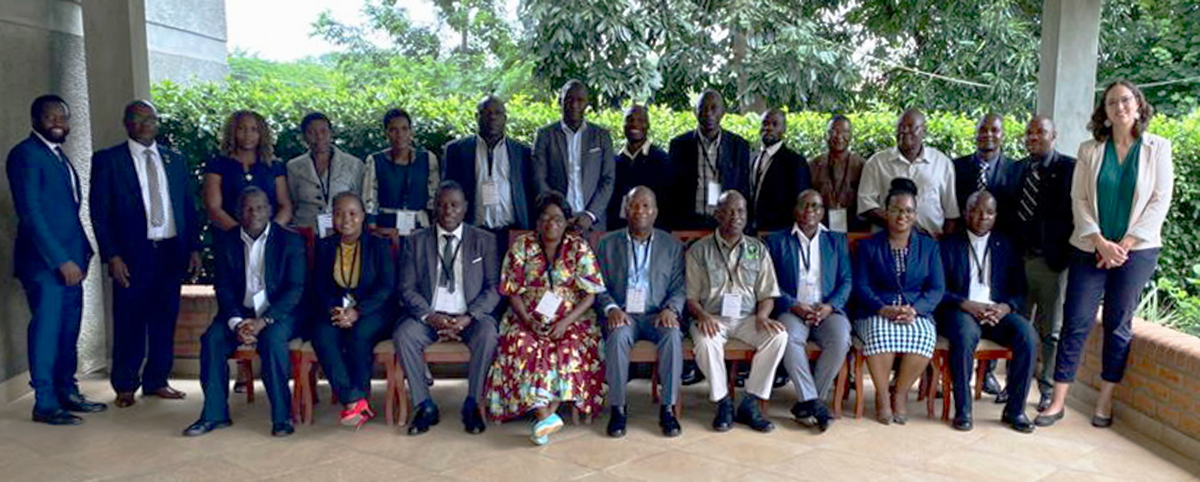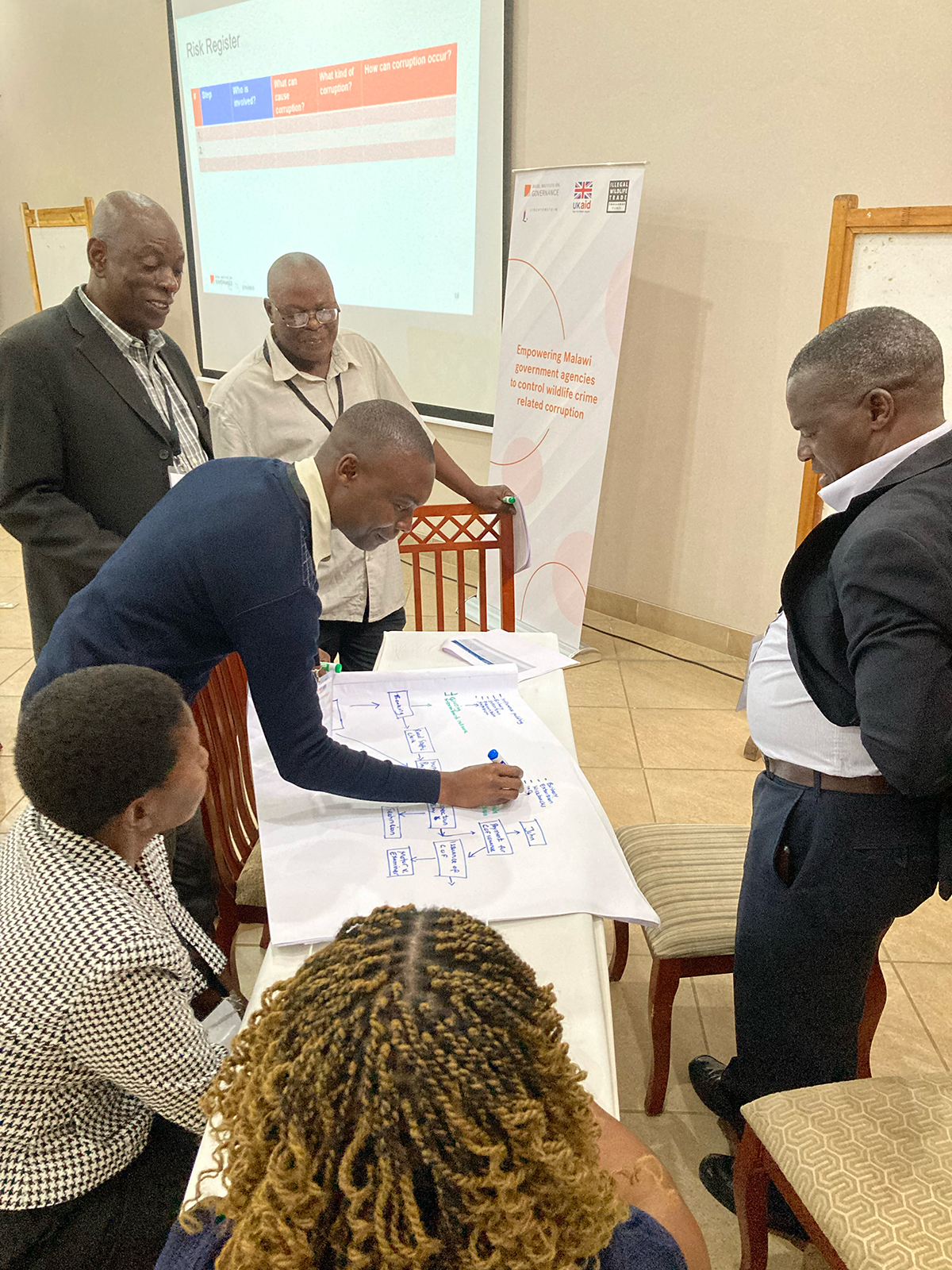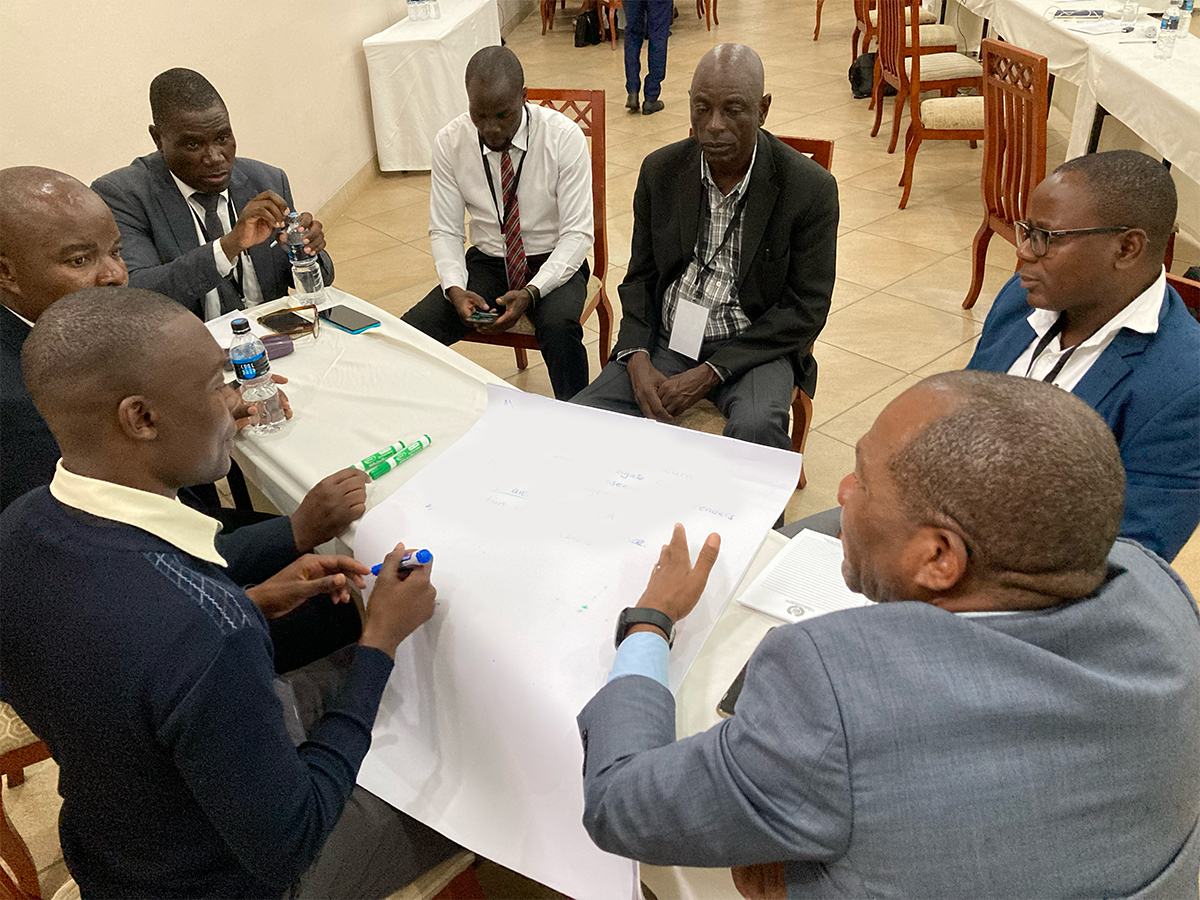Malawi: towards better corruption risk management to combat environmental crimes

Malawi has taken another positive step towards protecting the country’s wildlife, forests and other natural resources from illegal exploitation facilitated by corrupt practices.
Senior officers from Malawi’s main environmental and law enforcement agencies came together on 15-17 February 2023 for a three-day workshop led by the Basel Institute’s Green Corruption team. Together, the officers explored how to conduct systematic corruption risk assessments and develop targeted corruption risk mitigation plans for their agencies.
The 25 participants included public servants and officers from the Department of National Parks and Wildlife, Department of Forestry and the Malawi Police Service.
How do corruption risk assessments support environmental protection?
By assessing structural weaknesses in everyday operations and implementing targeted risk mitigation measures, agencies at the front line of fighting environmental crimes can be better placed to meet their own objectives.
If opportunities for corrupt behaviours decrease, then it will be more difficult for criminals to carry on with their illegal operations – starting in the parks and forests of Malawi. Strengthening preventive anti-corruption measures also means reducing revenue losses and safeguarding law enforcement operations and human security.
In addition, corruption can undermine effective law enforcement at every stage of the criminal justice chain – from detection through investigation, prosecution and sanctioning. That makes it all too easy for criminals who poach or traffic wildlife and timber to evade justice. The integrity of enforcement responses to environmental crimes is a systemic issue in practically all resource-rich countries, though too many still ignore the issue.
Managing corruption risks therefore fits into the bigger picture of stopping corruption from undermining efforts against environmental crimes.
Learning by doing
Using interactive, participatory approaches with exercises, the training guided participants step by step through the corruption risk assessment process. Groups of participants were tasked to assess their agencies’ processes and main corruption risks and to develop corruption risk mitigation plans.
One participant shared how he previously found it hard to know where to start to address corruption. But with this training, he saw that zooming in on the work processes helps to identify very precisely where things can go wrong. Then the methodology helps to prioritise risks in order to put concrete action in place and be strategic in the context of limited resources. “This is what we need!” he said.
Though the exercises were tailored to Malawi’s national context and needs, participants also had the chance to learn about international approaches and standards for identifying corruption risks, plus experiences from other countries.
Looking forward
Corruption risk assessments are not mandatory for public agencies in Malawi. Participants were unaware of this type of assessment being done before in their agencies. However, they all appreciated this new tool, as they shared common awareness and concerns about corruption as a key challenge they face to efficiently fight wildlife and forest crimes.
Many participants indicated they will advocate for a systematic corruption risk assessment process at their respective agencies, in order to expose any weak points and find solutions to strengthen their systems. Our team is committed to providing technical assistance for these concrete next steps.
The training is an early milestone in a programme of the UK’s IWT Challenge Fund, implemented by the Basel Institute’s Green Corruption team together with local partners.
Learn more
See our topic briefs for the Targeting Natural Resource Corruption project on:
- Corruption risk assessments and the Basel Institute’s bespoke methodology
- How political economy analysis can complement corruption risk assessments
- Internal controls for environmental enforcement agencies
See our 2020 blog: Want to stop illegal wildlife trade? Be more like Malawi.





